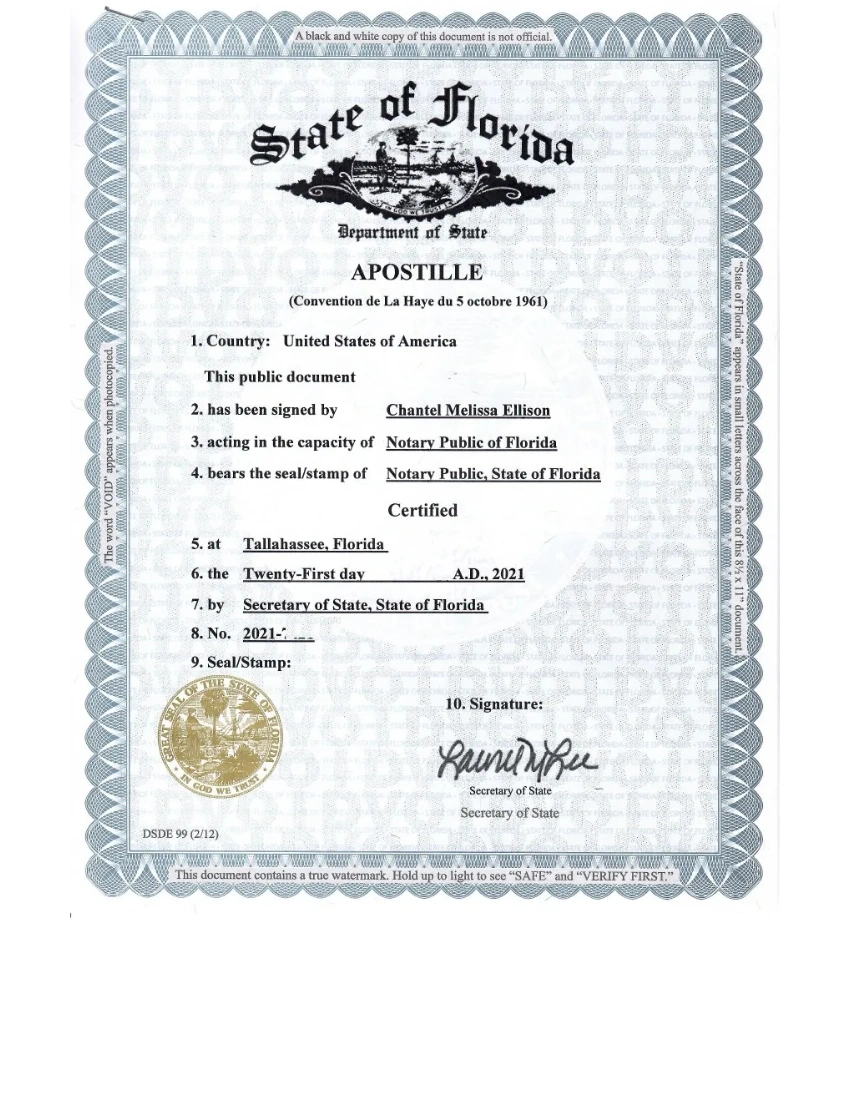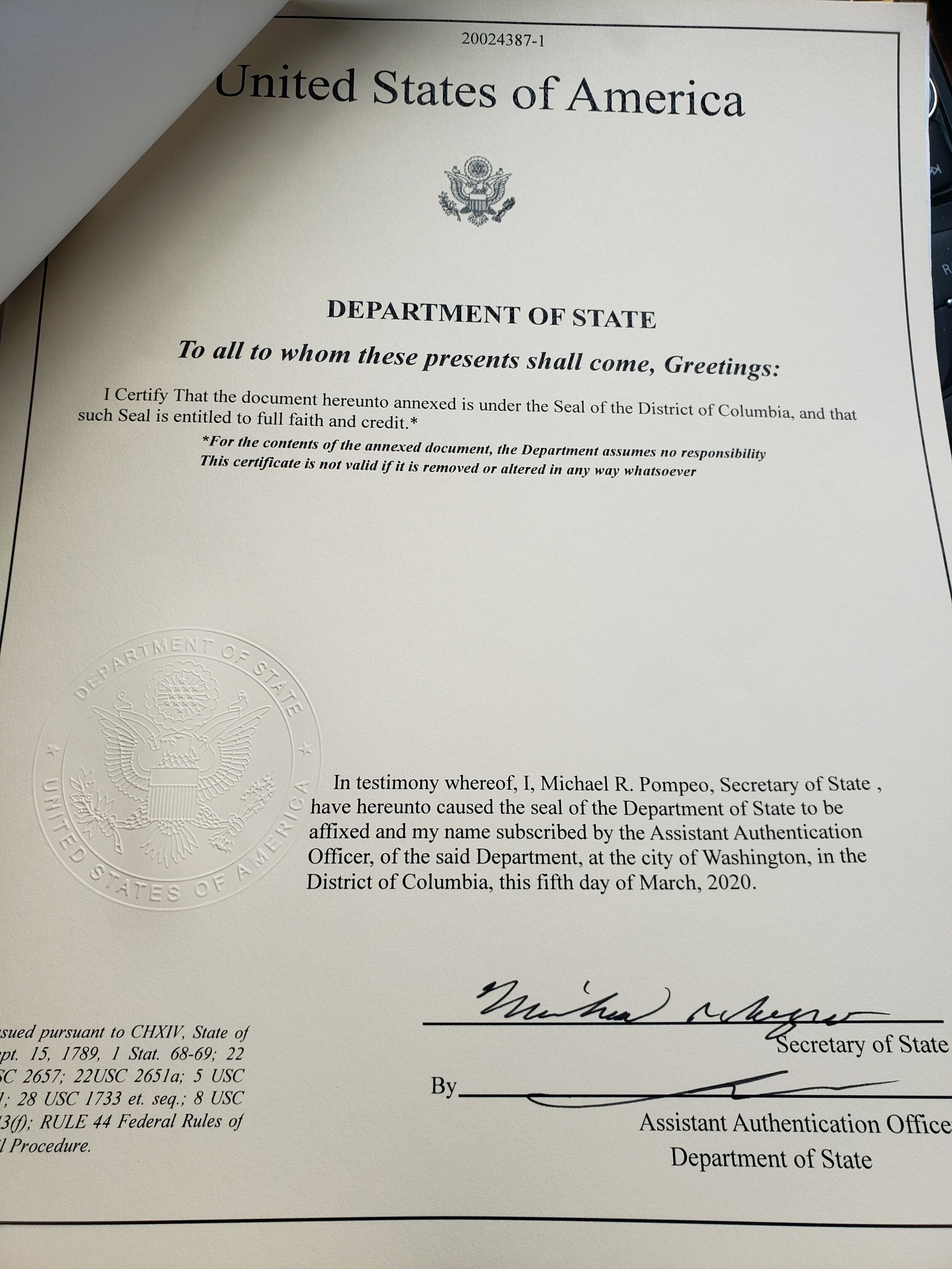Digging Into the Reasons Behind the Required Need of Apostille Qualification for Legal Documents
In the world of lawful documentation, the obligatory requirement of apostille certification has become a vital element that considerably impacts the credibility and recognition of lawful documents on a global range. Recognizing the rationale behind this necessity involves diving right into the complex web of legal intricacies, historic precedents, and international arrangements that highlight the significance of apostille certification in today's interconnected globe. By checking out the underlying reasons behind this prevalent demand, a clearer image emerges of why this seemingly governmental process holds such immense value for federal governments, organizations, and people alike.
Historical Advancement of Apostille Accreditation
How did the principle of apostille certification advance gradually to become a crucial part of international record validation? The historic development of apostille qualification go back to the very early 20th century. The requirement for a streamlined method of confirming files for usage throughout borders came to be obvious as global trade and travel raised. In reaction to this demand, the Hague Seminar on Exclusive International Law introduced the Apostille Convention in 1961. This global treaty established a streamlined process for accrediting the credibility of records to be recognized in member nations.
At first taken on by a couple of European countries, the Apostille Convention progressively gained global acceptance because of its effectiveness and efficiency in confirming the authenticity of main documents. For many years, the convention's reach increased as even more countries signed up with, recognizing the apostille as a generally approved kind of document authentication. Today, apostille certification has ended up being a typical requirement for verifying legal papers in worldwide transactions, making sure smooth interaction and lawful procedures between nations.
Simplifying International Record Legalization
The streamlining of worldwide record legalization procedures has actually significantly improved performance in cross-border transactions. Simplifying the procedure of legislating documents for worldwide usage has actually become important in promoting swift and seamless transactions between nations. Among the key mechanisms that have added to this simplification is the fostering of the Apostille Convention, which provides a standardized method for confirming the credibility of records throughout participating nations.
By adhering to the Apostille requirements, countries consent to acknowledge each various other's public papers as legitimate without the demand for more legalisation. This eliminates the commonly difficult and extensive process of multiple authentications by different authorities, saving time and resources for companies and individuals taken part in international activities.

Ensuring Document Credibility and Validity
To ensure the credibility and validity of legal records in international deals, stringent verification procedures are important. By needing apostille certification for legal documents, authorities intend to verify the beginning of files and validate the signatures of individuals included.
Moreover, confirming the credibility of lawful documents with apostille qualification boosts count on and confidence amongst events taking part in international deals. It supplies guarantee that the documents presented are authentic and lawfully binding, therefore decreasing the dangers related to illegal activities. Additionally, making sure record validity through apostille qualification streamlines the legalisation process, making it extra trusted and reliable for people and companies performing business throughout boundaries. Inevitably, by upholding strict verification criteria, apostille qualification adds to an extra safe and clear worldwide lawful framework.

Facilitating Cross-Border Legal Acknowledgment
In the world of worldwide deals, the apostille certification not just makes certain the credibility and credibility of legal records yet likewise plays a critical role in promoting cross-border lawful recognition (Houston Apostille). When lawful documents bear an he has a good point apostille certification, they are easily accepted by international authorities without the requirement for further confirmation. This streamlined process quickens the recognition of documents in various countries, advertising effectiveness and reducing governmental obstacles in lawful issues that transcend nationwide boundaries
Promoting cross-border legal recognition with apostille qualification fosters trust and confidence in the credibility of records traded between countries. By adhering to the requirements established forth by the Apostille Convention, countries concur to recognize the apostille seals affixed to documents from other member countries, therefore simplifying the procedure of lawful acknowledgment throughout boundaries.
Conformity With International Treaty Standards
Compliance with international treaty standards is essential for guaranteeing the uniform application of legal policies across taking part nations. The Apostille Convention, established in 1961, describes the demands for the acceptance of public papers amongst member countries. By adhering to the requirements set forth in this treaty, nations dedicate to acknowledging the validity of each other's certification without the need for more verification - Houston Apostille. This common approval enhances the process of cross-border document recognition, advertising effectiveness and minimizing administrative hurdles.
The Apostille accreditation, as mandated by the treaty, works as a warranty of credibility for documents such as birth certifications, marriage licenses, court judgments, and notarized deeds. This standard method aids stop fraud and makes certain that legal documents stemming from one member nation are easily accepted in one more. By complying with worldwide treaty standards, nations show their commitment to maintaining the principles of transparency, trust fund, and collaboration in lawful issues on a global range.
Conclusion

In the realm of legal paperwork, the required requirement of apostille accreditation has actually come to be an essential aspect that substantially influences the validity and recognition of legal papers on a worldwide scale. Today, apostille accreditation has actually come to be a standard requirement for validating legal papers in worldwide deals, making sure smooth interaction and lawful procedures in between countries.
Additionally, validating the credibility of lawful records via apostille certification improves trust fund and confidence additional info amongst parties involving in global purchases.In the world of global deals, the apostille accreditation not just ensures the credibility and validity of legal documents but additionally plays a crucial duty in promoting cross-border lawful recognition. By adhering linked here to the criteria established forth by the Apostille Convention, countries agree to recognize the apostille seals fastened to papers from other member nations, therefore simplifying the process of lawful recognition across boundaries.
Comments on “Apostille Services in Houston: Simplify Your Document Legalization”